A Comprehensive Survey of Self-Evolving AI Agents: A New Paradigm Bridging Foundation Models and Lifelong Agentic Systems
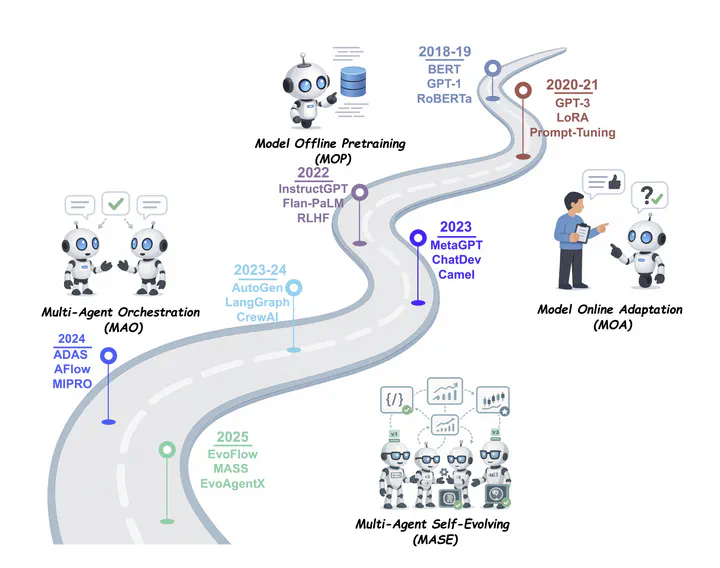
Background and Development Trends
This survey provides a comprehensive overview of the latest advances in the field of self-evolving AI agents, highlighting key technological shifts and development trends.
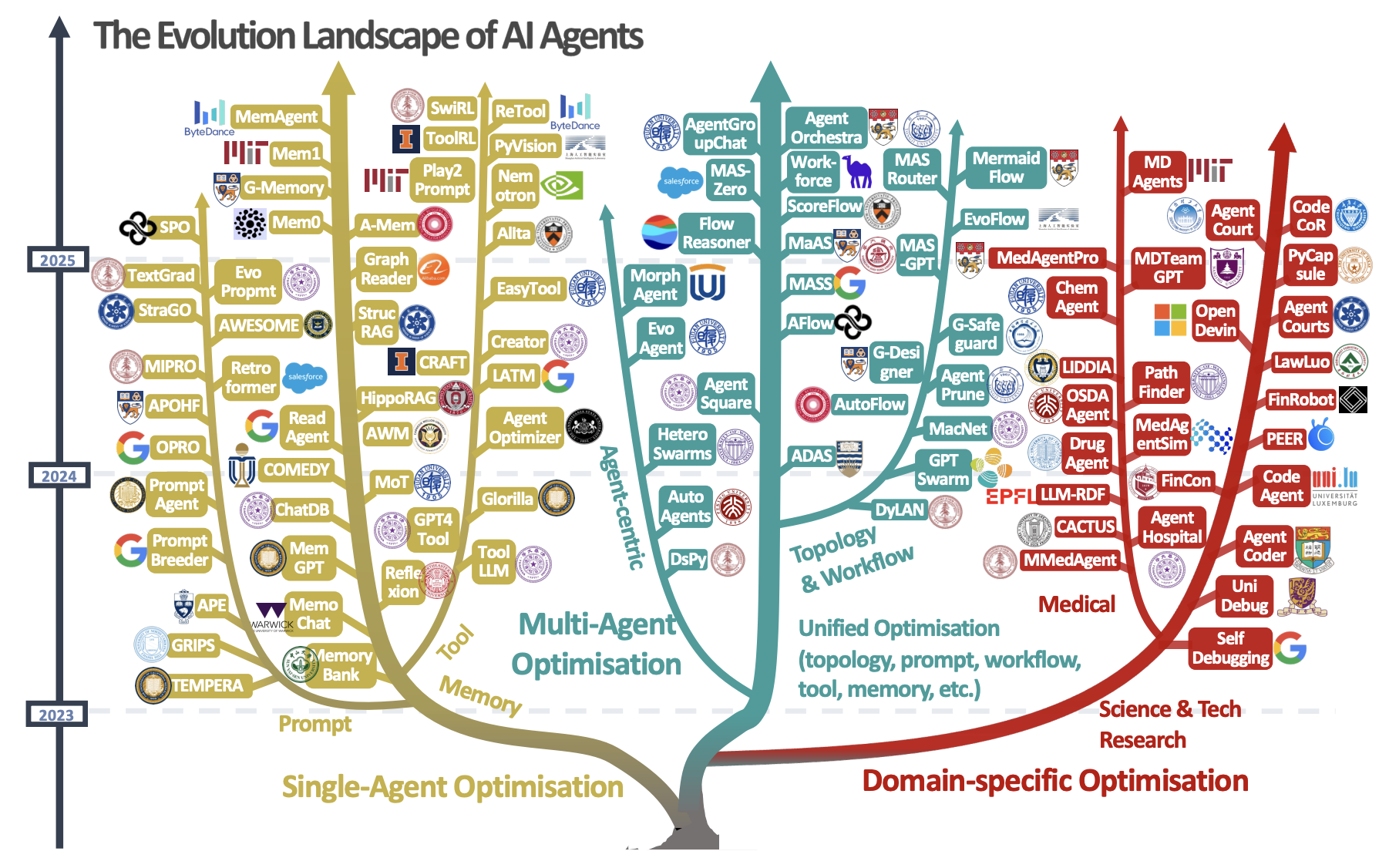
Paradigm Definition
We define the new paradigm of “Self-Evolving AI Agents” as bridging foundation models and lifelong agentic systems.
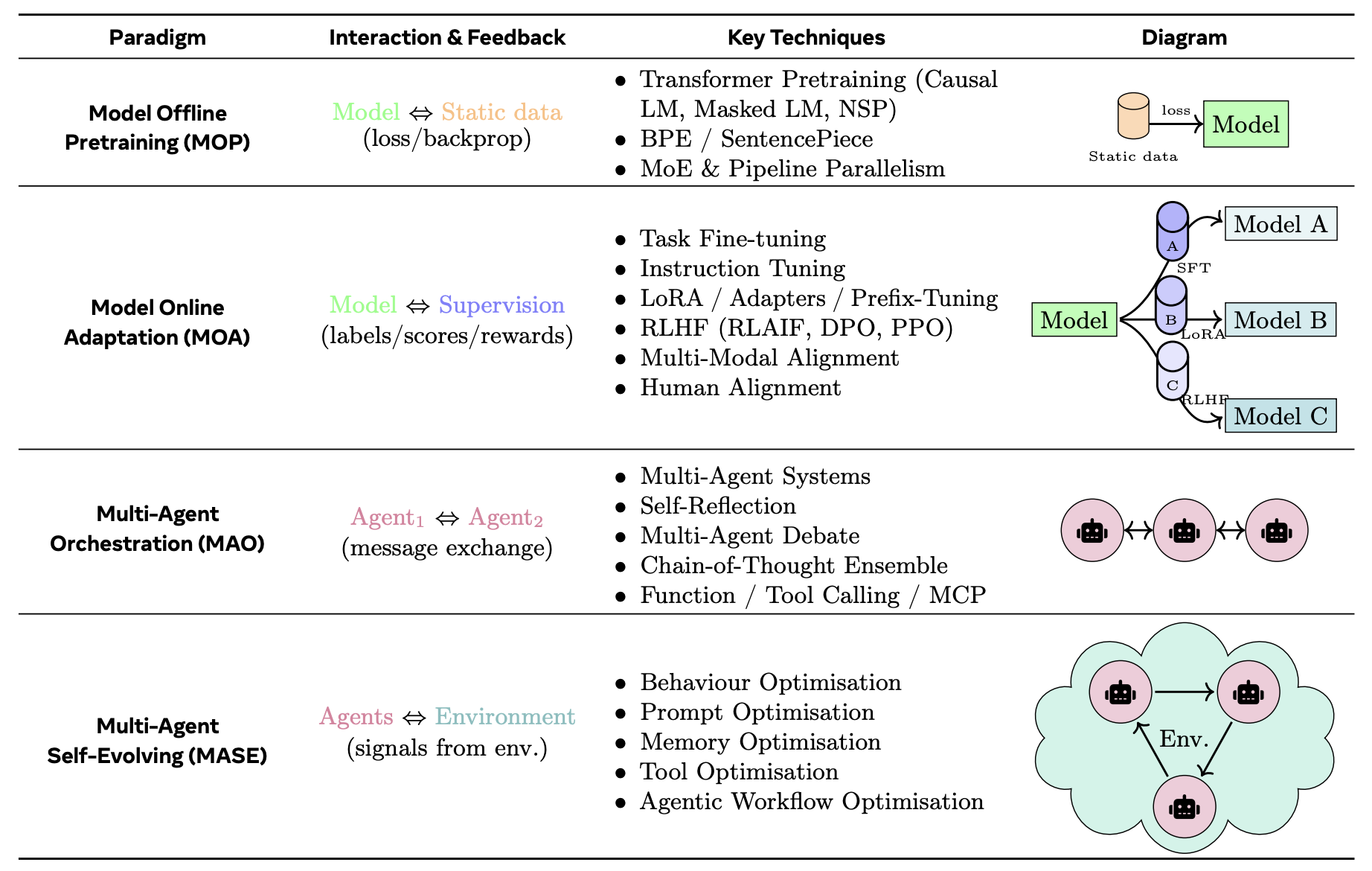
Concept Definition of Self-Evolving AI Agents
Self-evolving AI agents are autonomous systems that continuously and systematically optimise their internal components through interaction with environments, with the goal of adapting to changing tasks, contexts and resources while preserving safety and enhancing performance.
Guiding Principles: Three Laws
Inspired by Asimov’s Three Laws of Robotics, we propose the Three Laws of Self-Evolving AI Agents:
- Endure (Safety Adaptation): Any modification must maintain safety and stability.
- Excel (Performance Preservation): Subject to the first law, agents must preserve or enhance task performance.
- Evolve (Autonomous Evolution): Subject to the first and second laws, agents must autonomously optimize their internal components in response to changes.
Unified Framework and Technical Review
We propose a unified conceptual framework with four core components: System Inputs, Agent System, Environment, and Optimisers. The survey systematically reviews evolution strategies across foundation models, prompts, memory, tools, workflows, and inter-agent communication.
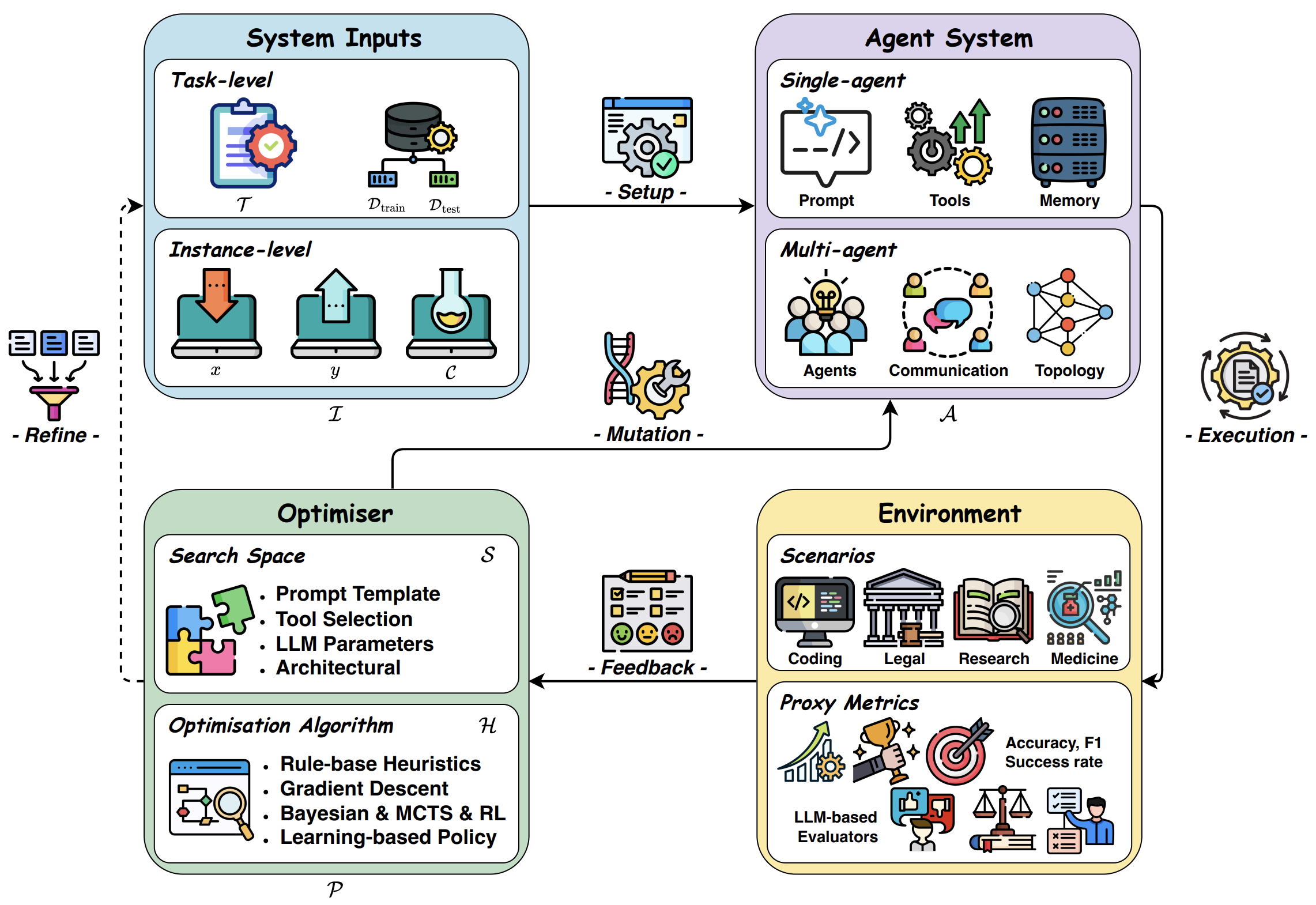
Single-Agent Optimisation
We explore optimisation techniques for individual self-evolving agents, focusing on methods that enhance their learning and adaptation capabilities.
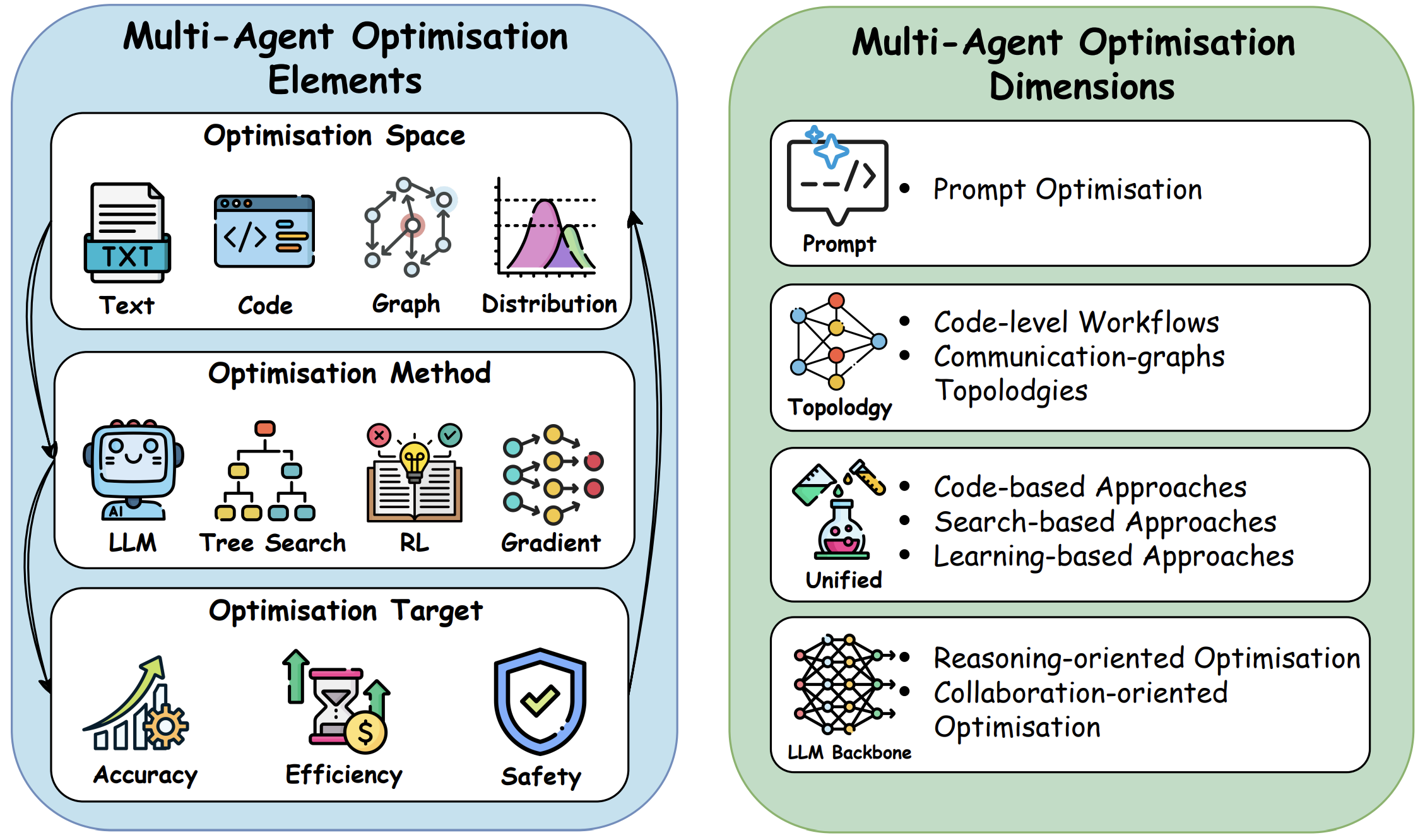
Multi-Agent Optimisation
We investigate strategies for optimising the performance of multiple self-evolving agents working collaboratively, addressing challenges such as communication, coordination, and resource sharing.

Domain Adaptation and Challenges
We also analyze domain-specific evolution methods in biomedicine, programming, and finance, and discuss key challenges in evaluation, safety, and ethics, laying the foundation for the next generation of adaptive, autonomous, lifelong agentic systems.
BibTeX
@article{fang2025comprehensive,
title={A comprehensive survey of self-evolving ai agents: A new paradigm bridging foundation models and lifelong agentic systems},
author={Fang, Jinyuan and Peng, Yanwen and Zhang, Xi and Wang, Yingxu and Yi, Xinhao and Zhang, Guibin and Xu, Yi and Wu, Bin and Liu, Siwei and Li, Zihao and others},
journal={arXiv preprint arXiv:2508.07407},
year={2025}
}